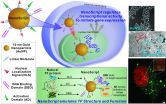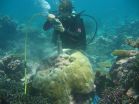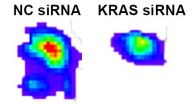Researchers discover that the liver and brain communicate in order to regulate appetite
Mice eat less when their hepatic glucose stores are high
2014-11-13
(Press-News.org) The liver stores excess glucose, sugar, in the form of glycogen--chains of glucose--, which is later released to cover body energy requirements. Diabetic patients do not accumulate glucose well in the liver and this is one of the reasons why they suffer from hyperglycemia, that is to say, their blood sugar levels are too high. A study headed by Joan J. Guinovart at the Institute for Research in Biomedicine (IRB Barcelona) demonstrates that high hepatic glucose stores in mice prevents weigh gain. The researchers observed that in spite of having free access to an appetizing diet, the animals' appetite was reduced. This is the first time that a link has been observed between the liver and appetite.
On the basis of the results published in the journal Diabetes, the researchers argue that the stimulation of hepatic glycogen production would provide an efficient treatment to improve diabetes and obesity.
"It is interesting to observe that what happens in the liver has direct effects on appetite. Here we reveal what occurs at the molecular level," explains Guinovart, head of one of the leading labs worldwide devoted to glycogen metabolism and associated diseases.
Tomorrow, November 14 is World Diabetes Day. The incidence of diabetes and obesity is rising. The World Health Organization estimates that 382 million people worldwide currently live with diabetes and for 2035 it forecasts that one in every 10 people will have this disease. With respect to obesity, which is closely associated with the onset of type 2 diabetes--the most common type of diabetes--the numbers are even higher. In 2008, more than 200 million men and around 300 million women were classified as obese.
"By understanding what doesn't work properly in diabetes and obesity in the molecular level, we will be closer to proposing new therapeutic targets and to finding solutions," explains Guinovart, although both diseases can be prevented by eating a balanced diet and exercising daily. "In the case of type 2 diabetes, with diet alone the numbers of people with this condition would half," states Guinovart.
How do the liver and brain communicate with each other to regulate appetite?
The researchers questioned why mice that accumulated most glycogen in the liver did not gain weight in spite of having access to an appetising diet. In addition to observing that these animals ate less, the scientists found that the brains of these animals showed scarce appetite-stimulating molecules but rather many appetite-suppressing ones.
"Then we finally hit on the clue--with the signal that could explain the liver-brain connection," explains Iliana López-Soldado, a postdoctoral researcher who has been working on these experiments for three years.
The key to the liver-brain link is ATP, the molecule used by all living organisms to provide cells with energy and which is commonly altered in diabetes and obesity. "We have seen that high levels of hepatic glycogen, stable levels of ATP, and high levels of appetite-suppressing molecules in the mouse brain are perfectly correlated," explains López-Soldado.
INFORMATION:
This study has been funded by the Ministerio de Economía y Competitividad and by the CIBER de Diabetes y Enfermedades Metabólicas (CIBERDEM), a network to which the lab headed by Joan Guinovart--also senior professor at the University of Barcelona--belongs.
Reference article:
Liver glycogen reduces food intake and attenuates obesity in a high-fat diet fed mouse model
Iliana López-Soldado, Delia Zafra, Jordi Duran, Anna Adrover, Joaquim Calbó, Joan J. Guinovart
Diabetes. 2014 Oct 2. doi:10.2337/db14-0728
[Attachments] See images for this press release:
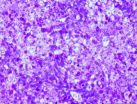
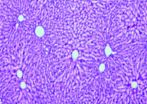
ELSE PRESS RELEASES FROM THIS DATE:
2014-11-13
PISCATAWAY, N.J. (November 13, 2014) - Rutgers University Chemistry Associate Professor Ki-Bum Lee has developed patent-pending technology that may overcome one of the critical barriers to harnessing the full therapeutic potential of stem cells.
One of the major challenges facing researchers interested in regenerating cells and growing new tissue to treat debilitating injuries and diseases such as Parkinson's disease, heart disease, and spinal cord trauma, is creating an easy, effective, and non-toxic methodology to control differentiation into specific cell lineages. ...
2014-11-13
(Boston) - The Alzheimer's drug memantine may perform double-duty helping binge eaters control their compulsion. Researchers have demonstrated that memantine, a neuroprotective drug, may reduce the addictive and impulsive behavior associated with binge eating.
The Boston University School of Medicine (BUSM) study, which appears online in Neuopsychopharmacology, also found that a specific area in the brain, the nucleus accumbens, which is responsible for addictive behaviors, facilitates the effects of memantine.
Binge-eating disorder is a prevalent illness in America, ...
2014-11-13
The Earth's oceans are thought to have taken up about one quarter of the carbon dioxide (CO2) that humans pumped into the atmosphere in the past 2 decades. While this drives acidification and has consequences for sea life, it also moderates the rate of climate change.
Researchers recently set out to create a global model of CO2 uptake using fine-scale observations on a global scale. Between 1998 and 2011, they found strong interannual variations, with the Pacific Ocean dominating the global flux variability.
"Shipboard surface water CO2 measurements are the backbone ...
2014-11-13
The ocean is warming steadily and setting up the conditions for stronger El Niño weather events, a new study has shown.
A team of US, Australian, and Canadian researchers sampled corals from a remote island in Kiribati to build a 60-year record of ocean surface temperature and salinity.
"The trend is unmistakeable, the ocean's primed for more El Niño events," says lead-author Dr Jessica Carilli, now based at the University of Massachusetts, Boston.
Team member Dr Helen McGregor from the Research School of Earth Sciences at The Australian National University ...
2014-11-13
HOUSTON - (Nov. 13, 2014) - While feelings of disgust can increase behaviors like lying and cheating, cleanliness can help people return to ethical behavior, according to a recent study by marketing experts at Rice University, Pennsylvania State University and Arizona State University. The study highlights the powerful impact emotions have on individual decision-making.
"As an emotion, disgust is designed as a protection," said Vikas Mittal, the J. Hugh Liedtke Professor of Marketing at Rice's Jones Graduate School of Business. "When people feel disgusted, they tend to ...
2014-11-13
Half a million objects, including debris, satellites, and the International Space Station, orbit the planet in the thermosphere, the largest layer of Earth's atmosphere. To predict the orbits--and potential collisions--of all this stuff, scientists must forecast the weather in the thermosphere.
Researchers who analyzed the role that gravitational effects of the Moon have on the thermosphere found that satellites taking different paths around the planet--circling over the poles, around the equator, or any route in between--will experience different levels of lunar-induced ...
2014-11-13
CHAPEL HILL, NC - Researchers from the UNC School of Medicine and colleagues at The University of Texas MD Anderson Cancer Center have developed a new approach to block the KRAS oncogene, one of the most frequently mutated genes in human cancer. The approach, led by Chad Pecot, MD, an assistant professor of medicine at UNC, offers another route to attack KRAS, which has proven to be an elusive and frustrating target for drug developers.
The new method relies upon a specifically sequenced type of small interfering RNA - or siRNA. The findings, published in the journal ...
2014-11-13
Irvine, Calif., Nov. 13, 2014 -- A new bloodstream infection test created by UC Irvine researchers can speed up diagnosis times with unprecedented accuracy, allowing physicians to treat patients with potentially deadly ailments more promptly and effectively.
The UCI team, led by Weian Zhao, assistant professor of pharmaceutical sciences, developed a new technology called Integrated Comprehensive Droplet Digital Detection. In as little as 90 minutes, IC 3D can detect bacteria in milliliters of blood with single-cell sensitivity; no cell culture is needed.
The work appears ...
2014-11-13
The Sudbury Basin located in Ontario, Canada is one of the largest known impact craters on Earth, as well as one of the oldest due to its formation more than 1.8 billion years ago. Researchers who took samples from the site and subjected them to a detailed geochemical analysis say that a comet may have hit the area to create the crater.
"Our analysis revealed a chondritic platinum group element signature within the crater's fallback deposits; however, the distribution of these elements within the impact structure and other constraints suggest that the impactor was a comet. ...
2014-11-13
Among overweight and obese adults who had asthma and participated in weight loss programs, more severe asthma, male sex, and improvements in eating behaviors were all linked with better success at losing weight.
The finding that individuals with more severe asthma may have a greater motivation to lose weight suggests that these individuals should be targeted for intervention. Also, gender tailoring of weight loss programs may be useful to enhance weight loss success, said Lisa Wood, senior author of the Respirology study.
INFORMATION: ...
LAST 30 PRESS RELEASES:
[Press-News.org] Researchers discover that the liver and brain communicate in order to regulate appetite
Mice eat less when their hepatic glucose stores are high


